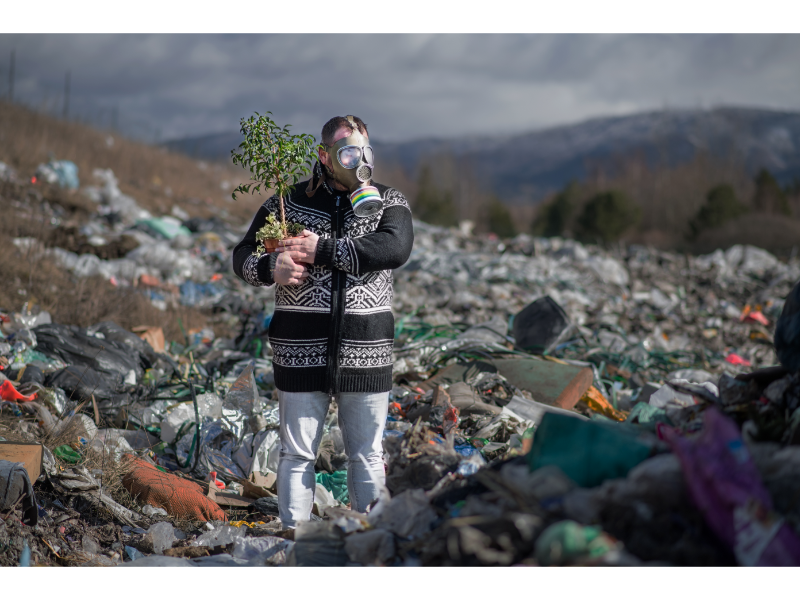Environmental problems are increasing in today’s world. The importance of recycling for sustainable living is also growing. Bursa, one of Turkey’s industrial centers, stands among the leading cities in recycling and waste management. Burkasan has 25 years of experience. It maintains its leading position in the sector. Burkasan offers integrated and sustainable waste management solutions all over Turkey, minimizing environmental impacts. Thus, it reduces the workload of businesses.
In this article, we will cover various topics. These include the importance of recycling in Bursa and the environmental and social contributions of recycling. We will also discuss the recycling process of plastic waste and Burkasan‘s vision. This will help individuals and businesses gain a better understanding. It will show why they should focus on sustainable recycling processes.
Table of Contents
- Importance of Recycling in Bursa
- Contribution of Recycling to the Environment
- How to Recycle Plastic Waste in Bursa?
- Impact of Recycling on Society
- Burkasan’s Vision for a Sustainable Future
- Innovative Approaches in Waste Management
- Conclusion
- Frequently Asked Questions
Importance of Recycling in Bursa
Bursa is one of Turkey’s leading industrial and commercial cities. It also plays a critical role in recycling. Intensive industrial activities and increasing population in the city make waste management even more important. Recycling contributes to the protection of natural resources. It also minimizes environmental damage.

In today’s world, natural resources are limited. Including waste in the Bursa recycling process is of great importance. Companies operating in Bursa actively participate in recycling processes. This provides economic benefits and strengthens their environmentally friendly brand image. It provides cost savings to businesses in the long term. It also reduces environmental impacts. Energy savings are one of the key advantages of recycling. Reduced use of raw materials and minimization of damage to nature are also significant benefits.
Getting professional support in the waste management process is important. It ensures that the processes are carried out more efficiently and effectively. Expert organizations such as Burkasan offer integrated waste management solutions. It helps businesses fulfill their legal obligations. It also contributes to building a sustainable future by fulfilling their environmental responsibilities. Burkasan has developed effective methods for waste collection, sorting, recovery, and disposal processes. It ensures that companies adopt an environmentally sensitive approach and produce more efficiently.
Contribution of Recycling to the Environment
Recycling protects the environment. This process contributes to the conservation of natural resources. It also helps save energy and prevents the release of waste into nature.

- Conservation of Natural Resources: Recycling contributes to the protection of natural resources by reducing the use of raw materials. In particular, it minimizes the consumption of resources such as wood, water and minerals. This helps to maintain the balance of the ecosystem.
- Energy Savings: Recycling significantly reduces the energy consumed for the production of new products. For example, using recycled aluminum uses 95% less energy than producing new aluminum. This conserves energy resources.
- Reducing Carbon Footprint: Reduced production processes mean less carbon emissions. Recycling plays an effective role in combating climate change by reducing the greenhouse gas effect in the atmosphere.
- Reduced Waste: Recycling reduces the amount of waste going to landfills. In this way, it minimizes its environmental impact. It also protects a healthier ecosystem without leaving harmful wastes in nature.
These contributions form the cornerstones of a sustainable life. The recycling of materials such as plastic, metal, and glass is crucial. It plays a significant role in the protection of nature. Burkasan maximizes environmental benefits in waste management processes. It continues to work for a more livable future.
How to Recycle Plastic Waste in Bursa?
Recycling of plastic waste in Bursa is carried out with environmentally sensitive approaches and modern technologies.
- Collection: The transformation process of plastic waste starts with the collection of waste from businesses, industrial organizations and individuals. Burkasan ensures fast and effective collection of waste through an organized collection network.
- Sorting: The collected waste is sorted according to plastic types. This stage is of great importance for the efficiency of the recycling process. It directs the plastics separated according to their types to appropriate recycling methods.
- Washing and Cleaning: The separated plastics are cleaned of dirt, oil and other foreign substances. The cleaning process both improves product quality and paves the way for a healthy recycling process.
- Granulating: The cleaned plastic wastes are processed by special machines into granular raw materials.
- Reuse: The granules obtained are reused in the production of plastic products. In this way, it reduces the need for raw materials and supports an environmentally friendly production process.
Burkasan makes the process faster and more efficient by using modern technologies in the transformation process of plastic waste. By applying environmentally sensitive methods at every stage, it ensures that waste is recovered without harming nature. Minimizes environmental impacts.
Impact of Recycling on Society
The main contributions of recycling to society are as follows:
- Contribution to Economy: Recycled materials make production processes more economical.
- Creation of Employment: The recycling sector contributes to the emergence of new business areas.
- Social Awareness: Raises environmentally sensitive individuals. It forms the basis of a sustainable society.
- A Healthy Environment: Provides cleaner and healthier living spaces.
Burkasan’s Vision for a Sustainable Future
Burkasan’s basic vision is to make the waste management processes of businesses easier and more efficient and to support the protection of natural resources by developing environmentally friendly solutions.
In line with this vision, Burkasan builds its operations on three basic principles:
- Innovative Technologies: Burkasan produces more effective and efficient solutions by using the latest technologies in waste management and recycling processes. Modern recycling facilities reduce the consumption of natural resources by ensuring the correct processing of waste. It aims for both environmental and economic sustainability by making technological investments.
- Environmentally Friendly Approaches: Burkasan prefers methods that do not harm the environment and protect nature. It develops environmentally friendly solutions and recycles waste without harming nature.
- Customer Orientation: It facilitates the waste management processes of businesses by offering practical, fast and effective solutions. Burkasan develops strategies tailored to the needs of each business, easing the workload and helping to fulfill legal responsibilities.
Innovative Approaches in Waste Management
Burkasan develops innovative approaches to waste management with modern technologies and environmentally friendly strategies. In this way, both environmental sustainability is ensured and waste management processes are made more efficient.

- Smart Waste Management Systems: Sensor collection systems instantly monitor waste fill rates and optimize collection processes.
- Circular Economy Approach: Recycled waste is used in the production of new products and prevents waste of resources.
- Zero Waste Policy: Minimizes the amount disposed by separating waste at its source.
- Innovative Recycling Technologies: Modern sorting machines and environmentally friendly technologies make recycling processes more efficient.
- Education and Awareness: Businesses and society increase their awareness through trainings on proper waste management and recycling.
Conclusion
As a result, effective and proper management of Bursa recycling processes is of great importance for both environmental sustainability and economic development. Effective recycling practices protect natural resources, reduce the amount of waste and minimize environmental damage. At this point, both individuals and businesses need to take responsibility and actively participate in waste management processes.
With its integrated waste management solutions, Burkasan ensures that businesses act in an environmentally sensitive manner and in compliance with legal obligations, while developing practices that minimize environmental impacts. With its modern technologies and environmentally friendly methods, it provides long-term contributions to society and nature by recycling waste without harming nature.
Frequently Asked Questions (FAQ)
Why is recycling important?
Recycling protects natural resources, reduces environmental damage and supports a sustainable future.
Which types of waste does Burkasan recycle?
Burkasan collects many different types of waste such as plastic, metal, glass, paper and industrial waste. It realizes the recycling of these wastes.
How is waste collected during the recycling process?
Businesses and individuals regularly deliver waste to designated collection points and send it to recycling facilities.
How is plastic waste recycled?
Plastic waste is collected and sorted. It is cleaned, granulated and used as raw material in the production of new products.
What are the biggest environmental benefits of recycling?
Conserves natural resources and saves energy. It reduces carbon emissions and minimizes the amount of waste.
Which technologies does Burkasan use in the recycling process?
Burkasan uses modern sorting machines and recycling facilities. It makes the processes more efficient and effective with environmentally friendly methods.
How does recycling benefit economically?
Reducing the need for raw materials, saving energy and reducing production costs are among the economic benefits of recycling.
Why is recycling industrial waste important?
Recycling industrial waste in the right way prevents environmental pollution. It also helps to use resources more efficiently.
How do individuals contribute to the recycling process?
Individuals sort their waste correctly and use recycling bins. Thus, they actively contribute to the process.


